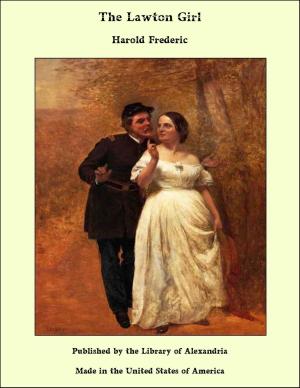The Complete Prose Works of Martin Farquhar Tupper
Nonfiction, Religion & Spirituality, New Age, History, Fiction & Literature| Author: | Martin Farquhar Tupper | ISBN: | 9781465558343 |
| Publisher: | Library of Alexandria | Publication: | July 29, 2009 |
| Imprint: | Library of Alexandria | Language: | English |
| Author: | Martin Farquhar Tupper |
| ISBN: | 9781465558343 |
| Publisher: | Library of Alexandria |
| Publication: | July 29, 2009 |
| Imprint: | Library of Alexandria |
| Language: | English |
THE LABOURER; AND HIS DAWNING DISCONTENT. Roger Acton woke at five. It was a raw March morning, still dark, and bitterly cold, while at gusty intervals the rain beat in against the crazy cottage-window. Nevertheless, from his poor pallet he must up and rouse himself, for it will be open weather by sunrise, and his work lies two miles off; Master Jennings is not the man to show him favour if he be late, and Roger cannot afford to lose an hour: so he shook off the luxury of sleep, and rose again to toil with weary effort. "Honest Roger," as the neighbours called him, was a fair specimen of a class which has been Britain's boast for ages, and may be still again, in measure, but at present that glory appears to be departing: a class much neglected, much enduring; thoroughly English—just, industrious, and patient; true to the altar, and loyal to the throne; though haply shaken somewhat now from both those noble faiths—warped in their principles, and blunted in their feelings, by lying doctrines and harsh economies; a class—I hate the cold cant term—a race of honourable men, full of cares, pains, privations—but of pleasures next to none; whose life at its most prosperous estate is labour, and in death we count him happy who did not die a pauper. Through them, serfs of the soil, the earth yields indeed her increase, but it is for others; from the fields of plenty they glean a scanty pittance, and fill the barns to bursting, while their children cry for bread. Not that Roger for his part often wanted work; he was the best hand in the parish, and had earned of his employers long ago the name of Steady Acton; but the fair wages for a fair day's labour were quite another thing, and the times went very hard for him and his. A man himself may starve, while his industry makes others fat: and a liberal landlord all the winter through may keep his labourers in work, while a crafty, overbearing bailiff mulcts them in their wages. For the outward man, Acton stood about five feet ten, a gaunt, spare, and sinewy figure, slightly bent; his head sprinkled with gray; his face marked with those rigid lines, which tell, if not of positive famine, at least of too much toil on far too little food; in his eye, patience and good temper; in his carriage, a mixture of the sturdy bearing, necessary to the habitual exercise of great muscular strength, together with that gait of humility—almost humiliation—which is the seal of oppression upon poverty. He might be about forty, or from that to fifty, for hunger, toil, and weather had used him the roughest; while, for all beside, the patched and well-worn smock, the heavily-clouted high-laced boots, a dingy worsted neck-tie, and an old felt hat, complete the picture of externals
THE LABOURER; AND HIS DAWNING DISCONTENT. Roger Acton woke at five. It was a raw March morning, still dark, and bitterly cold, while at gusty intervals the rain beat in against the crazy cottage-window. Nevertheless, from his poor pallet he must up and rouse himself, for it will be open weather by sunrise, and his work lies two miles off; Master Jennings is not the man to show him favour if he be late, and Roger cannot afford to lose an hour: so he shook off the luxury of sleep, and rose again to toil with weary effort. "Honest Roger," as the neighbours called him, was a fair specimen of a class which has been Britain's boast for ages, and may be still again, in measure, but at present that glory appears to be departing: a class much neglected, much enduring; thoroughly English—just, industrious, and patient; true to the altar, and loyal to the throne; though haply shaken somewhat now from both those noble faiths—warped in their principles, and blunted in their feelings, by lying doctrines and harsh economies; a class—I hate the cold cant term—a race of honourable men, full of cares, pains, privations—but of pleasures next to none; whose life at its most prosperous estate is labour, and in death we count him happy who did not die a pauper. Through them, serfs of the soil, the earth yields indeed her increase, but it is for others; from the fields of plenty they glean a scanty pittance, and fill the barns to bursting, while their children cry for bread. Not that Roger for his part often wanted work; he was the best hand in the parish, and had earned of his employers long ago the name of Steady Acton; but the fair wages for a fair day's labour were quite another thing, and the times went very hard for him and his. A man himself may starve, while his industry makes others fat: and a liberal landlord all the winter through may keep his labourers in work, while a crafty, overbearing bailiff mulcts them in their wages. For the outward man, Acton stood about five feet ten, a gaunt, spare, and sinewy figure, slightly bent; his head sprinkled with gray; his face marked with those rigid lines, which tell, if not of positive famine, at least of too much toil on far too little food; in his eye, patience and good temper; in his carriage, a mixture of the sturdy bearing, necessary to the habitual exercise of great muscular strength, together with that gait of humility—almost humiliation—which is the seal of oppression upon poverty. He might be about forty, or from that to fifty, for hunger, toil, and weather had used him the roughest; while, for all beside, the patched and well-worn smock, the heavily-clouted high-laced boots, a dingy worsted neck-tie, and an old felt hat, complete the picture of externals















